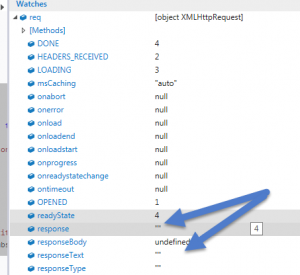In our earlier posts we provided sample code to write retrieve and retrievemultiple request, today we are going to provide sample code to create entity record using Web API. Let say we want to create account record and want to set different fields of different types. There are mainly two things which is different in Web API while creating entity record, the first is referring lookup field and the other is capturing response.
In Web API relationship is represented using Navigation properties, there are two types of navigations properties Single-valued and Collection-valued. Single-valued navigation is used to represent many to one (N:1) navigation whereas Collection-valued is used to represent one to many and many to many navigation property. You can find more details here
To set the lookup (single-valued) navigation property we can use two options, like following:
//account["primarycontactid@odata.bind"]="/contacts(757B1E74-FBA3-E511-80DE-3863BB341BF0)";
In above code, we are setting primary contact id using existing contact record, but if required we can also create contact record on the fly and set lookup using following option:
account["primarycontactid"]={"firstname":"Mahender","lastname":"Pal"};
After create request is executed successfully, http response status code is returned as 204, which does not include any contents so if you will try to debug code, you will see response as blank like below:

But we can get GUID of the new record using following code
var accountUri = this.getResponseHeader("OData-EntityId");
So let’s create a java script web resource and use following code under text editor
function createAccount() {
var serverURL = Xrm.Page.context.getClientUrl();
var account = {};
account["name"] = "Web API Example";
account["address1_city"] = "Delhi";
//account["primarycontactid@odata.bind"]="/contacts(757B1E74-FBA3-E511-80DE-3863BB341BF0)"; //setting existing lookup
account["primarycontactid"] = {
"firstname": "Mahender",
"lastname": "Pal"
};
//optionset
account["industrycode"] = 1;
//two options
account["donotphone"] = true;
//number
account["numberofemployees"] = 20;
//date time
account["him_approvaldate"]=new Date();
var req = new XMLHttpRequest();
req.open("POST", serverURL + "/api/data/v8.0/accounts", true);
req.setRequestHeader("Accept", "application/json");
req.setRequestHeader("Content-Type", "application/json; charset=utf-8");
req.setRequestHeader("OData-MaxVersion", "4.0");
req.setRequestHeader("OData-Version", "4.0");
req.onreadystatechange = function() {
if (this.readyState == 4 /* complete */ ) {
req.onreadystatechange = null;
if (this.status == 204) {
var accountUri = this.getResponseHeader("OData-EntityId");
var ID = accountUri.substr(accountUri.length - 38).substring(1, 37); //get only GUID
Xrm.Utility.openEntityForm("account", ID); //Open newly created account record
} else {
var error = JSON.parse(this.response).error;
alert(error.message);
}
}
};
req.send(JSON.stringify(account));
}
After that we can call this method on some event or through command button to create account record.
Stay tuned for more Web API Samples !!

Pingback: Writing create request using Web API - Microsoft Dynamics CRM Community
Pingback: Writing update request using Web API | HIMBAP
How to set a OOB Date field? As I am getting an error of Edm.Date property.
Please let me know.
Hello,
You can set it simply account[“fieldname”]= new Date() what issue you are facing ??
Hello himbap, thank you very much for such a great article!
Thank you very much for article , i created html page using your code and added in web resource
created a button using ribbon command but its not creating a records. can you suggest on this .thanks
Hi there,
Thanks for a great article.
Can you please tell how I can write the below without hardcoding the values.
account[“name”] = “Web API Example”;
I want a value in this field from my HTML page.
Also could you explain if this “name” is schema name of the account name ?
Many Thanks
Mini
Yes, name is the logical name, in webapi we use logical names, incase you are using it in the HTML page you can simple get it using getElementById from html field.Thanks!